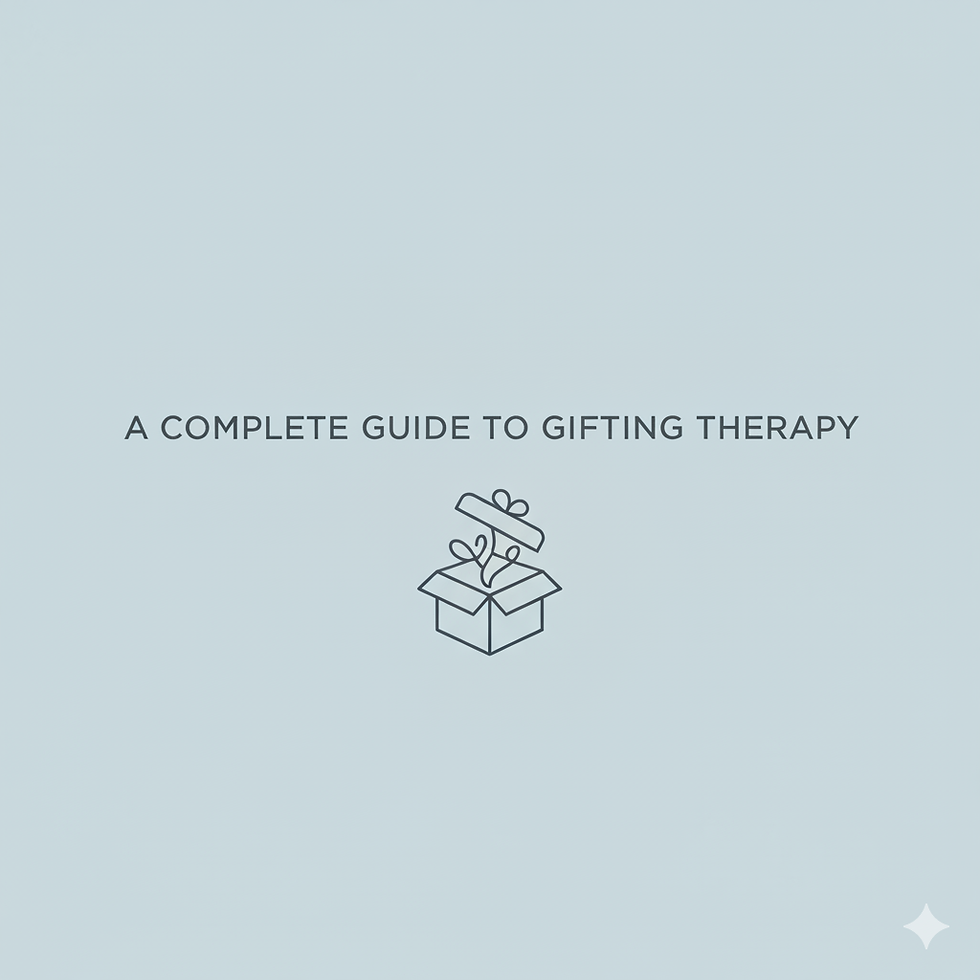EVERYTHING HAPPENS FOR A REASON! BUT, DOES STRESS??
- Regina D'Cruz
- Nov 18, 2020
- 3 min read
Updated: Nov 24, 2020

Fear is an emotion which is one among the six basic emotions. The others being
Happiness, Sadness, Anger, Disgust and Surprise. They are called ‘basic’ because
irrespective of age, background or culture, everyone has felt these emotions at one
point or the other at varying degrees of intensity.
Fear/ stress, simply put, is a response to a threat- which may be real or perceived.
It’s our body’s natural way to prepare ourselves to either fight the threat or flee from
the threat.
Physiologically, a number of reactions take place in our body. When the brain detects
this threat, it sends warning signals throughout the central nervous system. The
adrenal glands then begin producing hormones - adrenalin and noradrenalin which
cause the heart to beat faster and breathing to become quicker. More blood is sent to
our limbs, brain, eyes, ears and nose- which is needed to confront the danger or run
away, our pupils dilate to cause our vision to temporarily become better because this
dilation allows more light to enter the eyes, our muscles get tense, mouth gets dry,
our skin becomes cold and pale because blood supply to the skin decreases and we
start sweating.
Evolutionarily, this response has literally been a life saver. Picture this- early man is
hunting for food and suddenly, he hears something behind him. The body immediately
activates this fear/ stress response and early man is able to either run as fast as he
can to avoid danger or, if it’s something he can kill or hurt with his weapons, he goes
for the fight response. The body physiologically got him ready by stopping functions
which were not necessary- like digestion and sexual functions and activating those
which are necessary- like breathing faster for more oxygen. This is the reason why our
mouth gets dry- the production of gastric juices and saliva decreases. These functions
are considered less important in this high stress- live or die situation.

Now that was the life of our ancestors. In our life, we are rarely faced with a life or
death situation. This reaction can be appropriate if you are getting mugged or you
realize your vehicle is out of control or a wild dog is chasing you. Most of the time,
the stressors we face are hardly as dangerous as the above situations- an exam, an
interview, a first date, a presentation, an important event you’re in charge of
organizing, sickness of a loved one, etc. Therefore, not every threat we face in our
lives is real or that harmful to us. We have to often remind our brain of this. ‘No
brain- we’re not going to die. It’s just an interview.’ OR ‘Relax, there is no one
coming to kill us. It’s only our wedding we have to prepare for.’

Constantly reacting to each stressor as if it is a real danger can be exhausting and
causes anxiety. Imagine always being on high alert.. all those symptoms of the stress
response always activated. It can cause issues like insomnia (not able to sleep),
indigestion, an upset stomach, headaches, inability to concentrate on anything else
other than the stressor, irritability, high blood pressure, other body aches and pains
(because your muscles are constantly tensed), avoiding others or anything related to
the stress, eating more or less, etc. This takes a toll on your body physically and
emotionally. Over time, this is what leads to anxiety related disorders like phobias,
Panic disorder, Obsessive Compulsive disorder, etc.
Even though the reason our body feels fear is to enable us to protect our self, we
have to gauge whether this fear is worth this intense response. We may be able to
talk ourselves into calming down and reminding ourselves that it’s not a life or death
situation. It just means that we may have to prepare ourselves better for the
event/interview/exam, etc or we have to avoid it altogether. Fear isn't always the
enemy. It can act as a guide to adapt, adjust, and act well.
NOTE: If you feel stress or anxiety is hampering your day to day functioning, consider seeking professional help.
REFERENCES
1. https://youngdiggers.com.au/fight-or-
flight#:~:text=The%20adrenal%20glands%20begin%20producing,and%20deal%20with
%20it%2C%20or
2. https://www.calmclinic.com/anxiety/symptoms/pupil
3. http://www.tomvmorris.com/blog/2015/8/3/the-purpose-of-fear



Comments